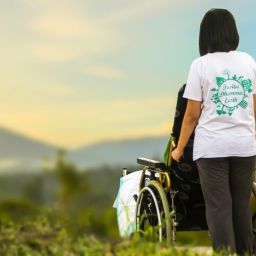
Embarking on a vegan lifestyle is a significant decision that can have profound effects on your health, the environment, and animal welfare. Before making the leap, it’s important to take thoughtful steps to ensure a smooth transition and set yourself up for success. In this blog, we’ll explore essential steps to consider before becoming vegan, empowering you to make informed choices and embrace the journey towards a plant-based lifestyle.
…”Veganism affirms what is best for us, what is best for the animals, and what is best for the environment. Everywhere you look, you find veganism entwined with what is best.” ~ Tom Regan
1. Educate Yourself About Veganism
Before transitioning to a vegan diet, take the time to educate yourself about the principles and benefits of veganism. Learn about the ethical, environmental, and health reasons for adopting a plant-based lifestyle, and familiarize yourself with common vegan foods, ingredients, and substitutes. Research reputable sources, read books and articles, and watch documentaries to deepen your understanding of veganism and its impact on various aspects of life.
2. Assess Your Motivations and Goals
Reflect on your motivations and goals for transitioning to a vegan diet. Whether you’re motivated by ethical concerns, environmental sustainability, health and wellness, or a combination of factors, clarifying your reasons can help reinforce your commitment to veganism. Set specific, achievable goals that align with your values and aspirations, whether it’s reducing your environmental footprint, improving your health, or advocating for animal rights.
3. Gradually Transition Your Diet
Transitioning to a vegan diet doesn’t have to happen overnight. Consider gradually phasing out animal products from your meals and incorporating more plant-based foods into your diet over time. Start by experimenting with vegan recipes and meatless meals a few times a week, gradually increasing the frequency as you become more comfortable and confident with plant-based cooking. This gradual approach can help minimize feelings of deprivation and ensure a smoother transition to a vegan lifestyle.
4. Explore Vegan Nutrition and Meal Planning
Before going vegan, familiarize yourself with vegan nutrition principles to ensure you’re meeting your dietary needs and maintaining optimal health. Learn about essential nutrients found in plant-based foods, such as protein, iron, calcium, vitamin B12, and omega-3 fatty acids, and identify vegan sources of these nutrients. Experiment with meal planning and preparation to ensure balanced and nutritious vegan meals that satisfy your taste buds and fuel your body.



















